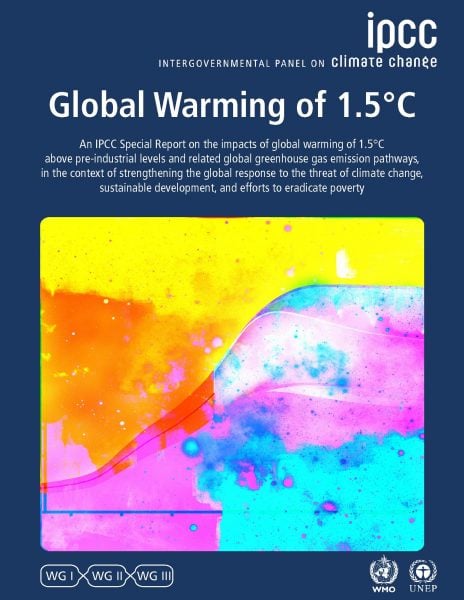

AR6 Synthesis Report: Climate Change 2022
The IPCC is currently in its Sixth Assessment cycle, during which the IPCC will produce the Assessment reports of its three Working Groups, three Special Reports, a refinement to the methodology report and the Synthesis Report. The Synthesis Report will be the last of the AR6 products, due for release in late 2022 or early 2023.
AR6 Climate Change 2022: Mitigation of Climate Change
The Working Group III contribution to the Sixth Assessment Report was finalized 4 April 2022.
AR6 Climate Change 2022: Impacts, Adaptation and Vulnerability
The Working Group II contribution to the Sixth Assessment Report was released 28 February 2022.
AR6 Climate Change 2021: The Physical Science Basis
The Working Group I contribution to the Sixth Assessment Report (August 2021) is the most up-to-date physical understanding of the climate system and climate change, bringing together the latest advances in climate science, and combining multiple lines of evidence from paleoclimate, observations, process understanding, and global and regional climate simulations.
The Ocean and Cryosphere in a Changing Climate
The IPCC approved and accepted the Special Report on the Ocean and Cryosphere in a Changing Climate at its 51st Session held on 20 – 23 September 2019. The approved Summary for Policymakers (SPM) was presented at a press conference on 25 September 2019. The report highlights the urgency of prioritizing timely, ambitious and coordinated action to address unprecedented and enduring changes in the ocean and cryosphere. The report reveals the benefits of ambitious and effective adaptation for sustainable development and, conversely, the escalating costs and risks of delayed action.
This Special Report on Climate Change and Land by the Intergovernmental Panel on Climate Change published in August 2019 responds to the Panel decision in 2016 to prepare three Special Reports during the Sixth Assessment cycle, taking account of proposals from governments and observer organizations. This report addresses greenhouse gas (GHG) fluxes in land-based ecosystems, land use and sustainable land management in relation to climate change adaptation and mitigation, desertification, land degradation and food security.
2019 Refinement to the 2006 IPCC Guidelines for National Greenhouse Gas Inventories
The 2019 Refinement to the 2006 IPCC Guidelines for National Greenhouse Gas Inventories was adopted and accepted during the 49th Session of the IPCC in May 2019. It was prepared by the Task Force on National Greenhouse Gas Inventories (TFI) in accordance with the decision taken at the 44th Session of IPCC in Bangkok, Thailand, in October 2016.
 Global warming of 1.5 ºC : an IPCC special report by
Global warming of 1.5 ºC : an IPCC special report by AR5: Fifth Assessment Report of the IPCC
Synthesis Report: Climate Change 2014
The Synthesis Report (SYR) of the IPCC Fifth Assessment Report (AR5) provides an overview of the state of knowledge concerning the science of climate change, emphasizing new results since the publication of the IPCC Fourth Assessment Report (AR4) in 2007.
Climate Change 2013: The Physical Science Basis
The Working Group I contribution to the Fifth Assessment Report of the Intergovernmental Panel on Climate Change (IPCC) provides a comprehensive assessment of the physical science basis of climate change since 2007 when the Fourth Assessment Report (AR4) was released.
AR5 Climate Change 2014: Impacts, Adaptation, and Vulnerability
The assessment of impacts, adaptation, and vulnerability in the Working Group II contribution to the IPCC’s Fifth Assessment Report (WGII AR5) evaluates how patterns of risks and potential benefits are shifting due to climate change since 2007 when the Fourth Assessment Report (AR4) was released.
AR5 Climate Change 2014: Mitigation of Climate Change
The Working Group III contribution to the IPCC’s Fifth Assessment Report (AR5) assesses literature on the scientific, technological, environmental, economic and social aspects of mitigation of climate change since 2007 when the Fourth Assessment Report (AR4) was released.
Published in November 2019 by the United Nations Office for Project Services (UNOPS), and prepared by the Initiative for Climate Action Transparency (ICAT), the Introduction to the ICAT Assessment Guides provides an overview of how to use this series of guides which help users asses the impacts of countries' climate policies and actions by providing methodologies to assess greenhouse gases, sustainable development and transformational impacts of polices and actions.